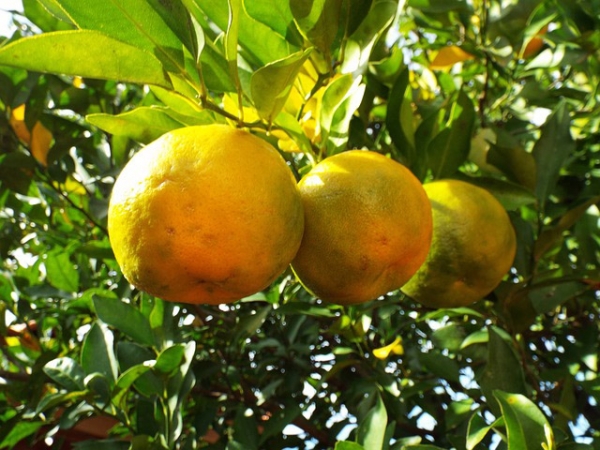Bergamot Essential Oil
Citrus Aurantium var. or Citrus Bergamia
Bergamot Essential Oil blends with Clary Sage, Frankincense, Mandarin, Jasmine, Black Pepper, Cypress, Geranium, Nutmeg, Sandalwood, Orange, Rosemary, Vetiver and Yland-Ylang. It is particularly complementary with other citrus oils.
Bergamot Essential Oil must be protected from sunlight, because bergaptene, one of its components, becomes poisonous if exposed to sunlight. It should always be stored in dark bottles in dark places. Exposure to sunlight should even be avoided after it is applied or rubbed onto the skin until it is fully absorbed. It should be diluted when used topically or used in a diffuser or as a supplement.
Known Uses
Components of Bergamot Oil are antibiotic and disinfectant in nature. They prevent the growth of germs, virus and fungi. It effectively restrict infections, including those of the skin. It is said to cure infections of the colon, intestines, urinary tract and kidneys. It promotes fast healing of wounds, cracks on the skin and heels, ulcers, eczema, and itching, and also protects wounds from becoming septic and developing deadly tetanus. Bergamot Essential Oil reduces pain from headaches, sprains, and muscle aches. It is used in vaporizers to relieve congestion and loosens phlegm and mucus in the respiratory tract. Researchrs believe it may be able to eliminate the formation of gall stones, protect against colic, halitosis, bronchitis and diphtheria. Bergamot Essential Oil soothes nerves and reduce anxiety and stress, high blood pressure, insomnia, and depression. It also stimulates certain hormones, which induce feelings of relaxation and sedation, like dopamine and serotonin. Bergamot Essential Oil helps digestion and regulates the peristaltic motion of the intestines, making bowel movements more regular. It can reduce fever by stimulating perspiration; it kills worms, and can be applied to infected teeth or used as a mouthwash. It relaxes nerves and muscles, and gives quick relief from cramps, convulsions, and painful muscle contractions and aids people with chronic cough or asthma. Bergamot Essential Oil is helps scars and other marks on the skin to disappear. It also makes the distribution of pigments and melanin even and uniform. Bergamot Essential Oil is an excellent deodorant and is often used in room fresheners and sprays.
History
Although Bergamot is native to tropical Asia, it is now cultivated in Southern Italy. It gets its name from the Italian city, of Bergamot in Lombardy where the essential oil was originally sold. It has been used for many years medicinally for fevers. Although a tropical plant, Bergamot thrives in Europe as well. It’s a popular component in many perfumes. One of the most common applications is its use in black tea which is then given a different name – Earl Grey!
Warnings
Bergamot Essential Oil can be unsafe when used on the skin topically full strength because it can make the skin sensitive to the sun and more vulnerable to skin cancer. Bergamot Essential Oil is unsafe in children when taken by mouth in large amounts. There have been serious side effects, including convulsion and death in children who have taken large amounts of Bergamot Oil. Do not use bergamot oil on your skin if you are pregnant or breast feeding. Bergamot might lower blood sugar levels, which could affect blood sugar control in people with diabetes. Monitor your blood sugar closely. There is some concern that it might interfere with blood sugar control during surgery. Stop using Bergamot at least two weeks before a scheduled surgery.
SHOP FOR BERGAMOT ESSENTIAL OIL ON AMAZON